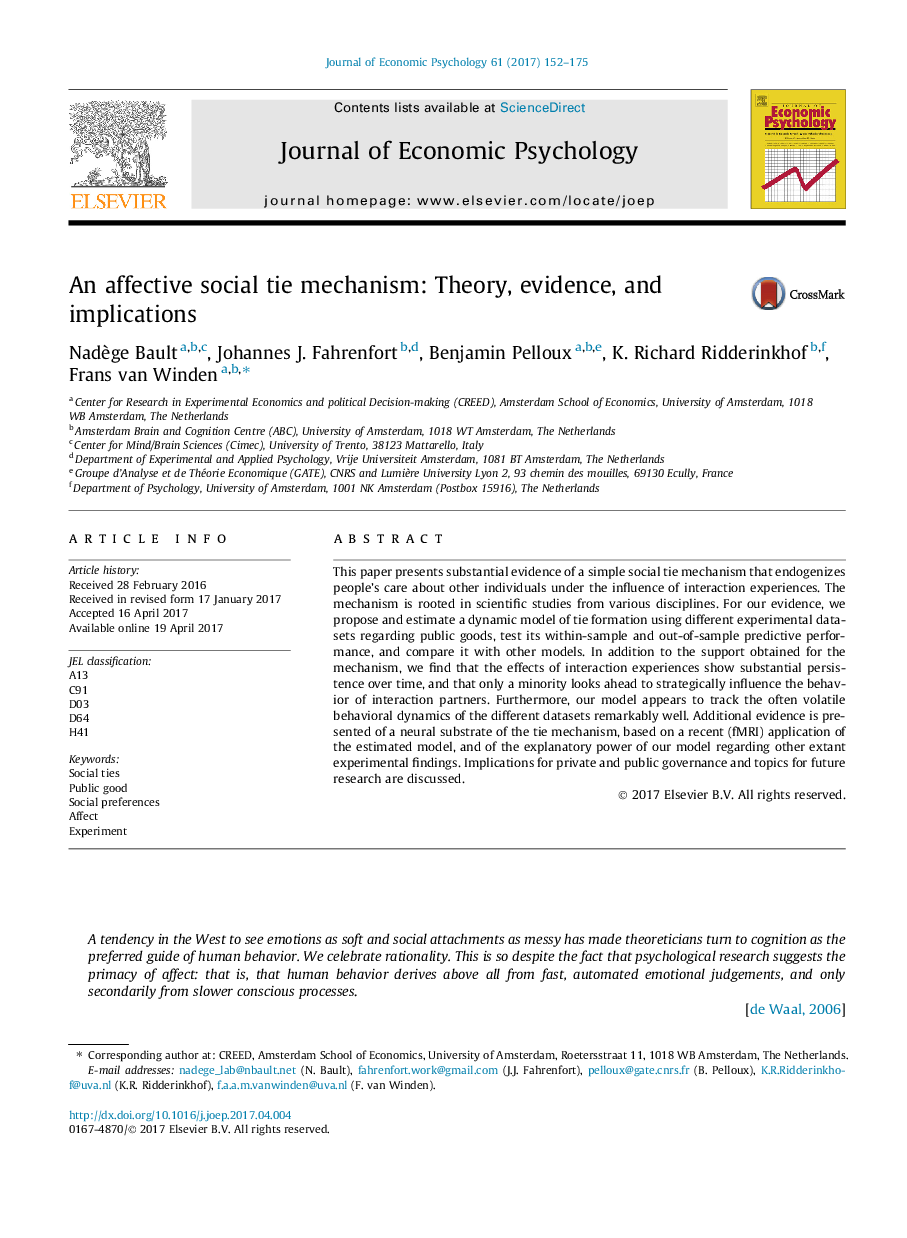| Article ID | Journal | Published Year | Pages | File Type |
|---|---|---|---|---|
| 5034771 | Journal of Economic Psychology | 2017 | 24 Pages |
Abstract
This paper presents substantial evidence of a simple social tie mechanism that endogenizes people's care about other individuals under the influence of interaction experiences. The mechanism is rooted in scientific studies from various disciplines. For our evidence, we propose and estimate a dynamic model of tie formation using different experimental datasets regarding public goods, test its within-sample and out-of-sample predictive performance, and compare it with other models. In addition to the support obtained for the mechanism, we find that the effects of interaction experiences show substantial persistence over time, and that only a minority looks ahead to strategically influence the behavior of interaction partners. Furthermore, our model appears to track the often volatile behavioral dynamics of the different datasets remarkably well. Additional evidence is presented of a neural substrate of the tie mechanism, based on a recent (fMRI) application of the estimated model, and of the explanatory power of our model regarding other extant experimental findings. Implications for private and public governance and topics for future research are discussed.
Related Topics
Social Sciences and Humanities
Business, Management and Accounting
Marketing
Authors
Nadège Bault, Johannes J. Fahrenfort, Benjamin Pelloux, K. Richard Ridderinkhof, Frans van Winden,
